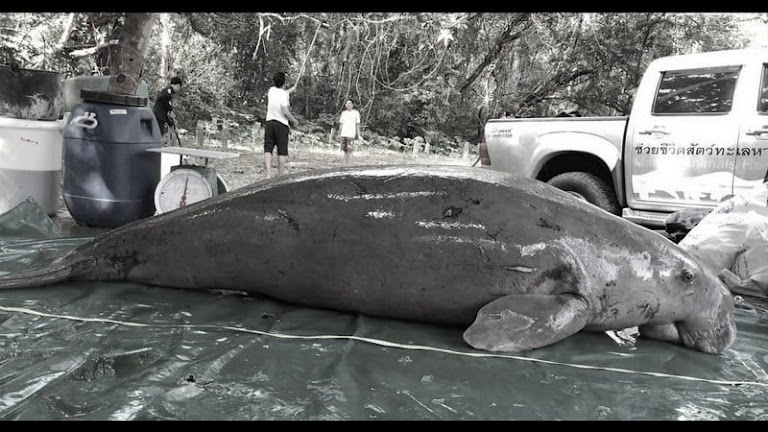Krabi Dugong Death Reveals Threats to Marine Life
Internal infection in Krabi dugong highlights systemic issues: habitat degradation, pollution, and climate change threaten vulnerable marine ecosystems.

The death of a young dugong off the coast of Krabi, Thailand, as detailed in these recent findings, isn’t just a sad headline; it’s a symptom, a data point in a much larger and more complex system of marine conservation challenges and ecological fragility. The Department of Marine and Coastal Resources (DMCR) reports the dugong succumbed to an internal infection, but the why behind that infection demands a deeper look.
The initial autopsy revealed the presence of parasites, fluid accumulation, and organ swelling, all indicative of a systemic infection. While the article notes the absence of immediate physical trauma from fishing gear, the underlying causes of this infection—the stressors that weakened the dugong’s immune system in the first place—remain unaddressed. Were there pollutants in the water? Were food sources depleted, forcing the animal to consume less nutritious seagrass, impacting its health? Was it a consequence of warming waters contributing to the spread of disease? These are the questions that should drive our investigation.
The reported sighting of two new dugongs in the area near Ao Nam Mao, juxtaposed with the death, highlights the paradox of conservation efforts. Positive signs of biodiversity improvement can coexist alongside individual tragedies, reminding us that progress is rarely linear. It also speaks to the complexity of monitoring and managing these fragile ecosystems.
Consider these interconnected factors:
- Habitat Degradation: Coastal development, tourism, and unsustainable fishing practices continue to degrade seagrass beds, the dugong’s primary food source. Reduced food availability weakens individuals, making them more susceptible to disease.
- Water Quality: Pollution from agricultural runoff, industrial discharge, and untreated sewage introduces pathogens and toxins into the marine environment, directly impacting the health of marine mammals.
- Climate Change: Rising sea temperatures can exacerbate disease outbreaks and alter the distribution of seagrass, forcing dugongs to seek out less suitable habitats.
- Inadequate Monitoring and Enforcement: Despite conservation efforts, enforcement of regulations designed to protect dugongs and their habitat often falls short due to limited resources and political will.
The death of this young dugong underscores a fundamental truth about conservation: preserving a species requires more than just protecting individual animals. It demands a systemic approach that addresses the root causes of ecological decline, from pollution and habitat destruction to climate change and unsustainable human activity.
Ultimately, the death of this dugong should serve as a catalyst for renewed commitment to marine conservation. Understanding the systemic factors at play is crucial to ensuring the long-term survival of this vulnerable species and the health of the marine ecosystems they inhabit. Focusing solely on the immediate cause of death risks missing the bigger picture—and the bigger dangers—lurking beneath the surface.









